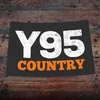
The Debate Over Explicit Material in Cheyenne’s School Libraries
In early November, the Wyoming Department of Education held a press release regarding Superintendent Megan Degenfelder's 'Establishing or Modifying Library Material Policy.' The guidance was "meant to serve as a resource for Wyoming school districts, encouraging discussion and adoption of a policy around library materials, providing key components of such a policy, and examples from others across the state," according to the document's opening letter.

In the wake of its release, the 13-page document has garnered criticism from members of the public, in particular for its use of the Laramie County draft policy - still in review - as an example.
Marcie Kindred, representing the Wyoming Family Alliance for Freedom, told KGAB News that the group "feels that Superintendent Degenfelder's guidance is neither helpful nor complete. We have serious concerns that Superintendent Degenfelder has included the LCSD1 draft policy in the guidance."
Conversely, LCSD1 Board Vice Chairperson Christy Klaassen believes that the Superintendent's words represent Degenfelder's "intention to provide guidelines in case they [other districts] are dealing with the issue of more sexually explicit content." The issue, argues Klaassen, is present in numerous districts. "She wanted to do something, but she believes in local control, so she chose to provide guidelines - how-to's to help districts get started," and adds that the Superintendent has done her due diligence to hear school district concerns and seek to give support via the guidelines without violating local control.
LCSD1: The Battleground for a Statewide Issue
In a state nicknamed 'The Equality State,' renowned for its dedication to freedom of speech and curtailing excessive government oversight, the debate over banning books from libraries rings all the more potently. Kindred acknowledged that WFAF found the idea of book bans contradictory to Wyoming values.
"That's why the WFAF was founded. We were shocked that this national hysteria around books made it to Wyoming. We keep the government as close to the people as possible. We don't want the government or school boards micromanaging our affairs...especially with our children. We value freedom - freedom to think, freedom to pray...you mind your fences, I'll mind mine. We value the ability to speak and think freely. Taking a playbook from out-of-state groups is the thing most offensive to our Wyoming souls. We never ever follow Florida," said Kindred.
But for Klaassen and members of the public for the new policy, the issue is far from "hysterical."
"We didn't have guidelines at the beginning of the year," said Klaassen. The new policy was designed "not to make a judgment about the books, but only to analyze if the content is sexually explicit."
But, How to Define Sexually Explicit?
Opponents of the new policy heavily argued in the public comment period that defining 'sexually explicit' is no easy matter. Where does the line get drawn?
Klaassen and proponents of the new policy argue that the new LCSD1 policy defines sexually explicit material clearly, and removes those materials from middle school libraries. Books that meet the new 'sexually explicit' qualifier are removed from Middle School libraries and limited to the High School demographic.
The proposed policy includes the following definitions for 'sexually explicit:'
"Sexually Explicit Content" means textual, visual, or audio materials that depict sexual conduct or describe sexual conduct using more than a passing reference (such as the use of a sex-related expletive) or allusion.
(To access the entire policy, click here.)
Is It a Book Ban?
The argument for and against the new LCSD1 draft policy centers around one theme - access. For Klaassen and other policy supporters, the policy is not so much a matter of banning books as it is of parental choice. "Each parent will have more power over the content available to their children," said Klaassen. She previously expressed that the policy changes "have nothing to do with the district segregating or banning access to books," to the Wyoming Tribune Eagle.
However, policy opponents firmly identify it as a 'ban.' "This program removes books from J. High. shelves." she explained that the new policy allows any book to be submitted for removal, ranging from Shakespeare to the Holy Bible (both subjects of which contain mature themes.) "That is banning books from a subsection of students. Nobody wants to be on the side of book banners because they don't want to be on the wrong side of history. Call it what it is."
But is it a book ban if it can be accessed in High School libraries in the district? Does removing it from Middle School shelves constitute a ban? These questions go unanswered as the debate over library book policy continues.
Is the Current LCSD1 Policy Enough?
For Kindred and the WFAF, it is. "They already have an opt-out policy giving parental control (we 100% support and would fight for that to continue. Not every book is for every child.) Librarians are so willing and happy to help parents fill out that very simple form that makes sure that the student only has the access they [the parents] want."
However, as previously mentioned, members of the LCSD1 Board felt that there was a gap in the current policy's ability to address public needs. One point illustrated by Klaassen was the flaws in the current library system. "We [the Board] found out that our system could search on topics..." A student could, for example, look up books about friendship. "But, an issue about friendship that may contain sexually explicit scenes could only be marked as 'friendship." Thus, students may unintentionally have access to a book their parents may not want them to have. As such, the Board felt it necessary to "figure out a way to identify material with sexually explicit content."
The opinions expressed within this article represent only the opinions of the interview subjects and do not reflect the opinions and beliefs of this website or its affiliates.
